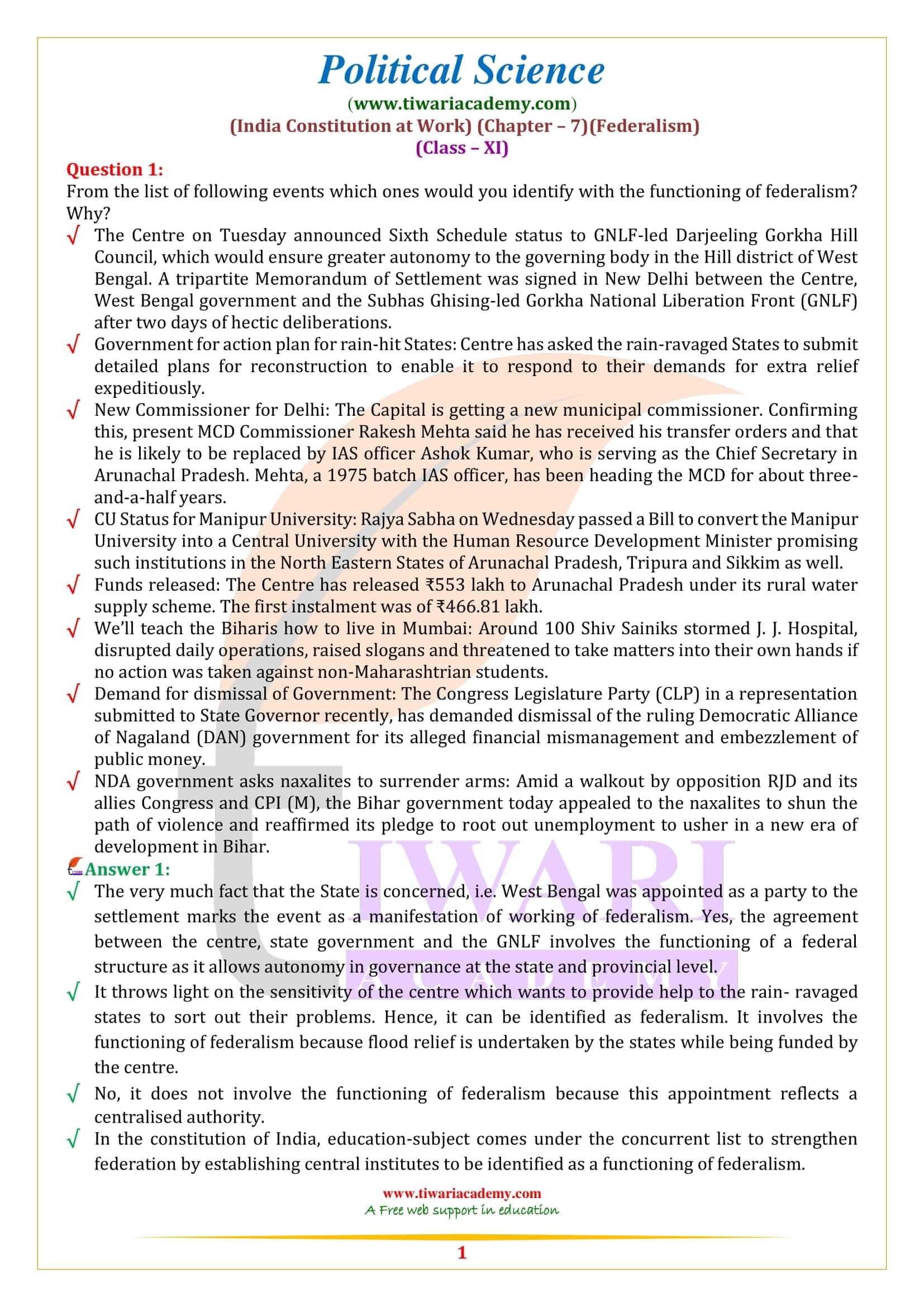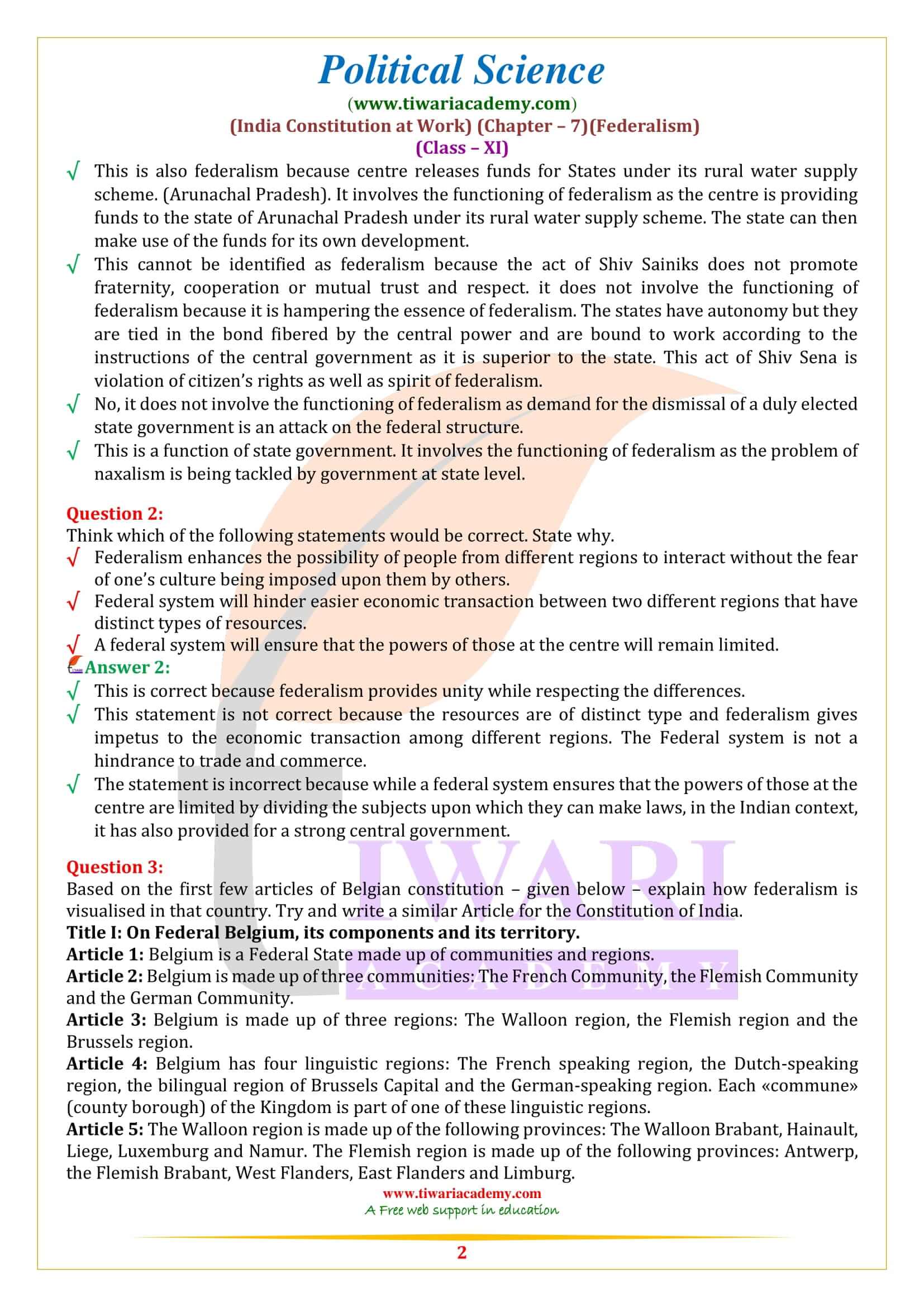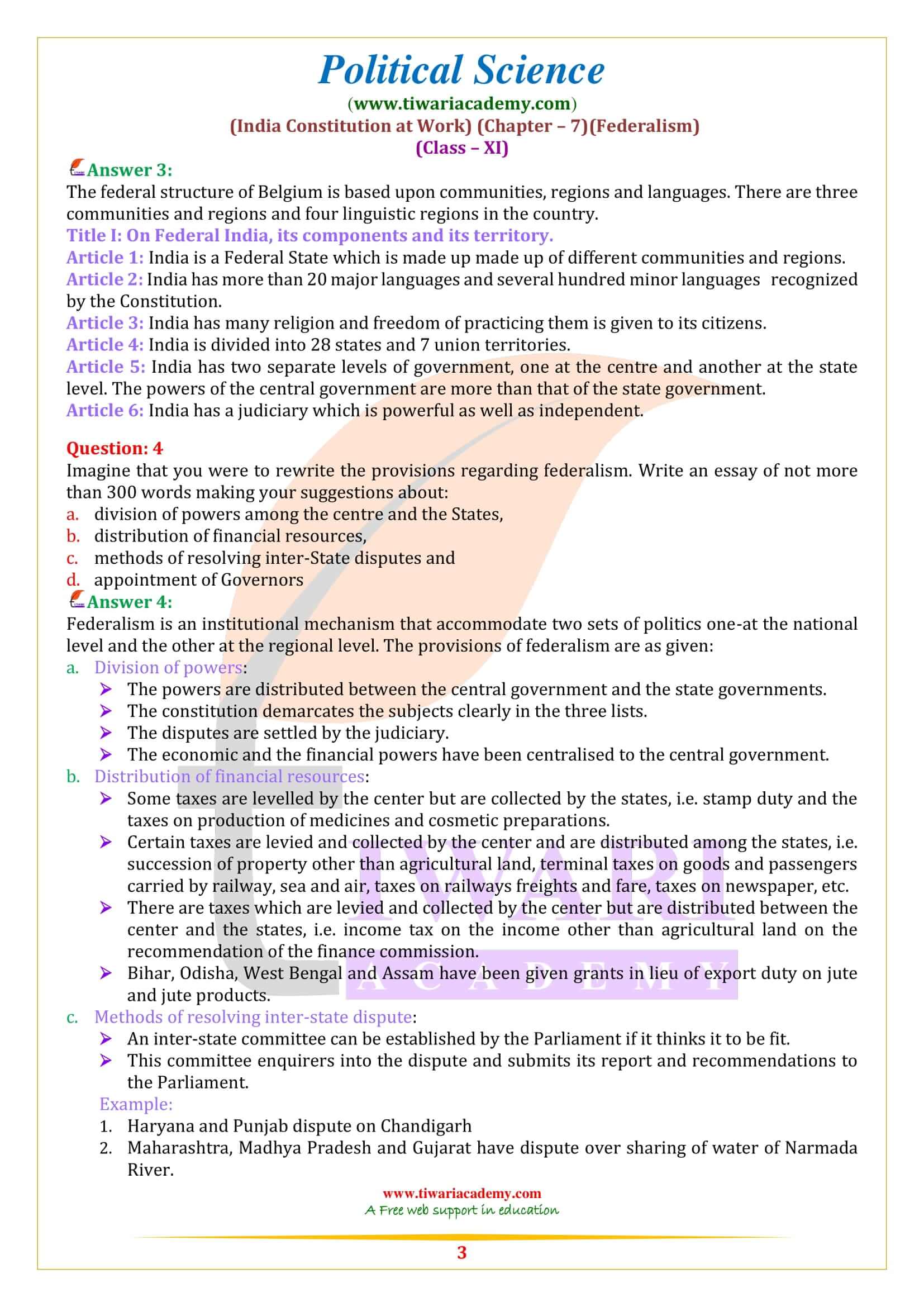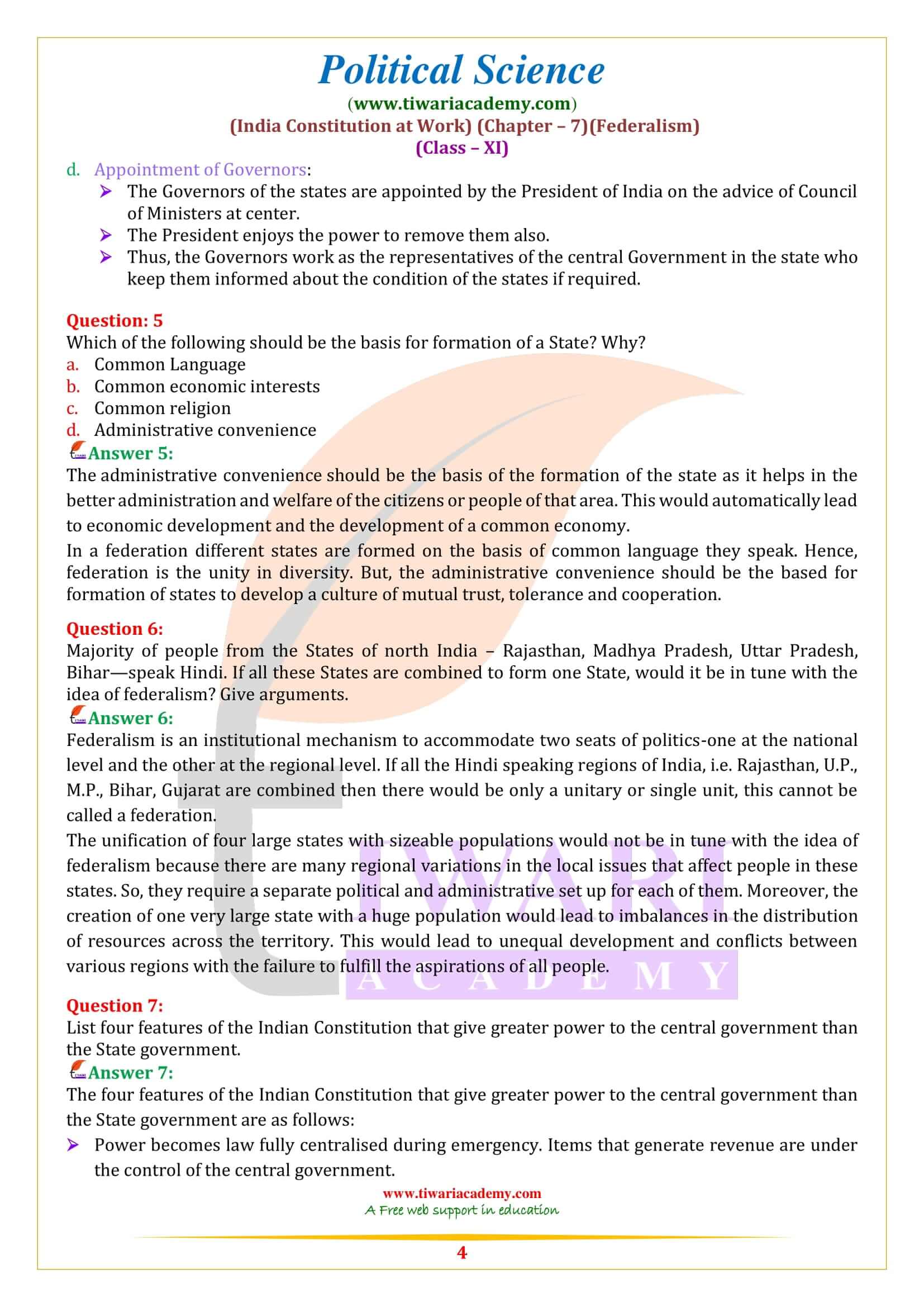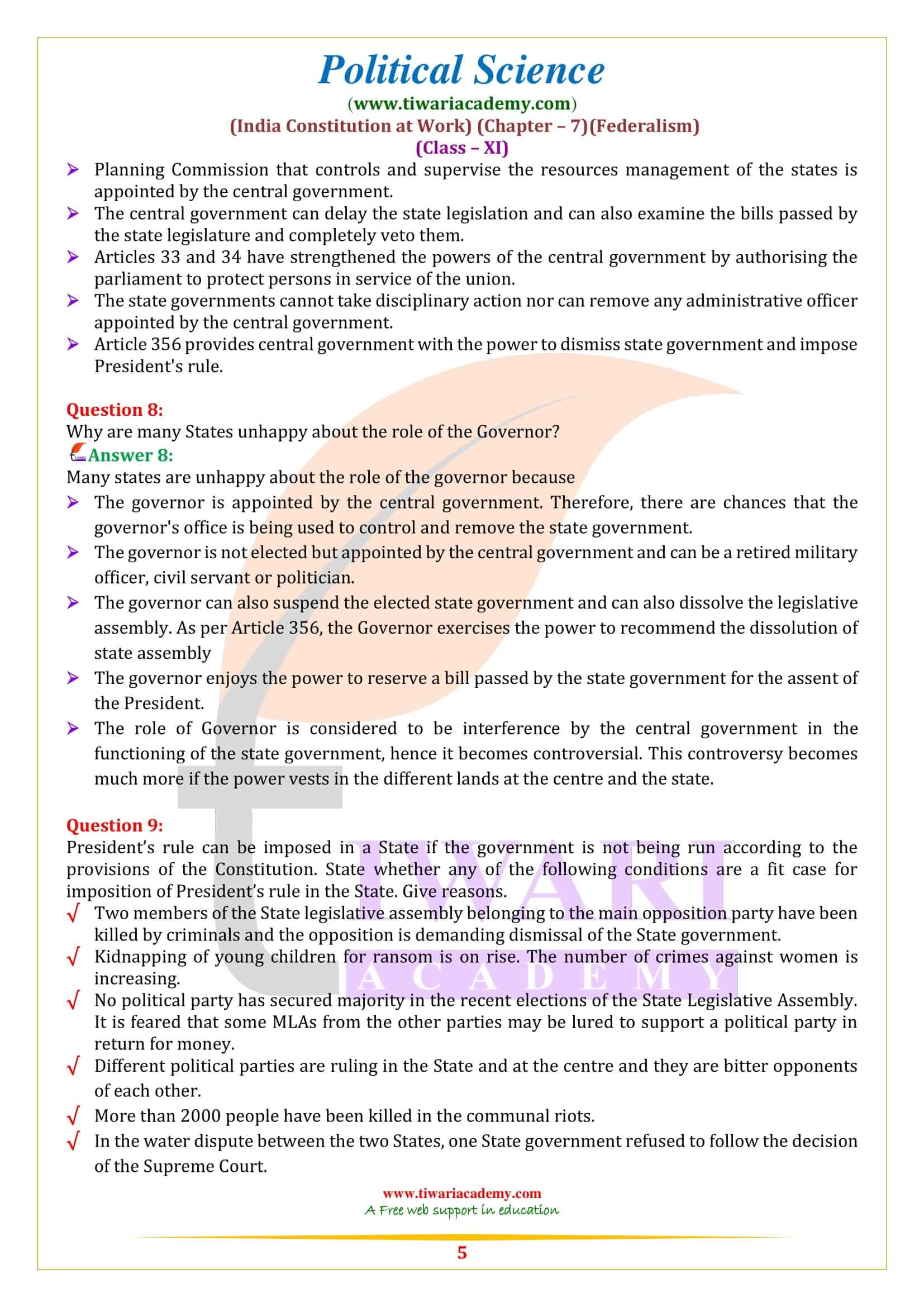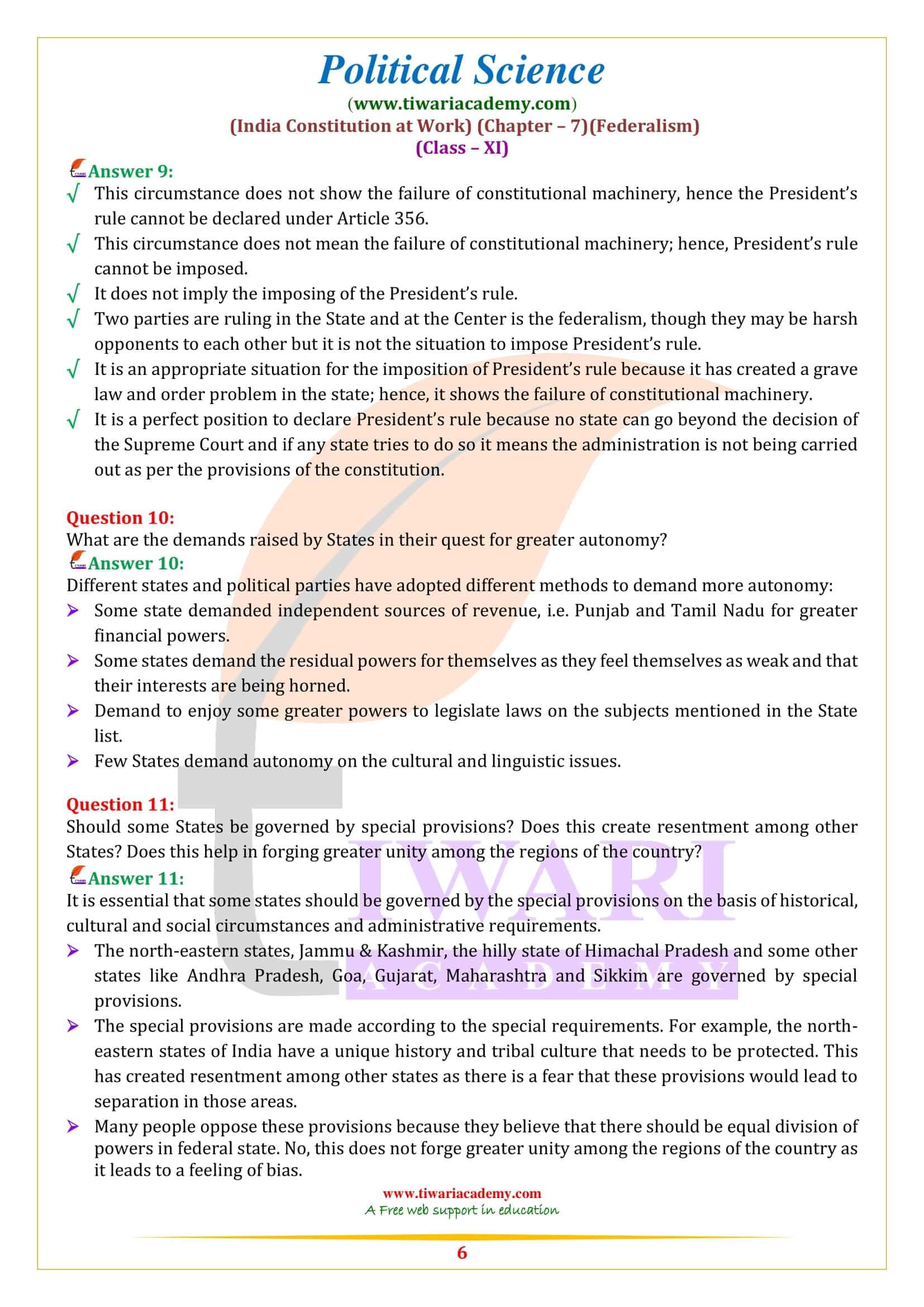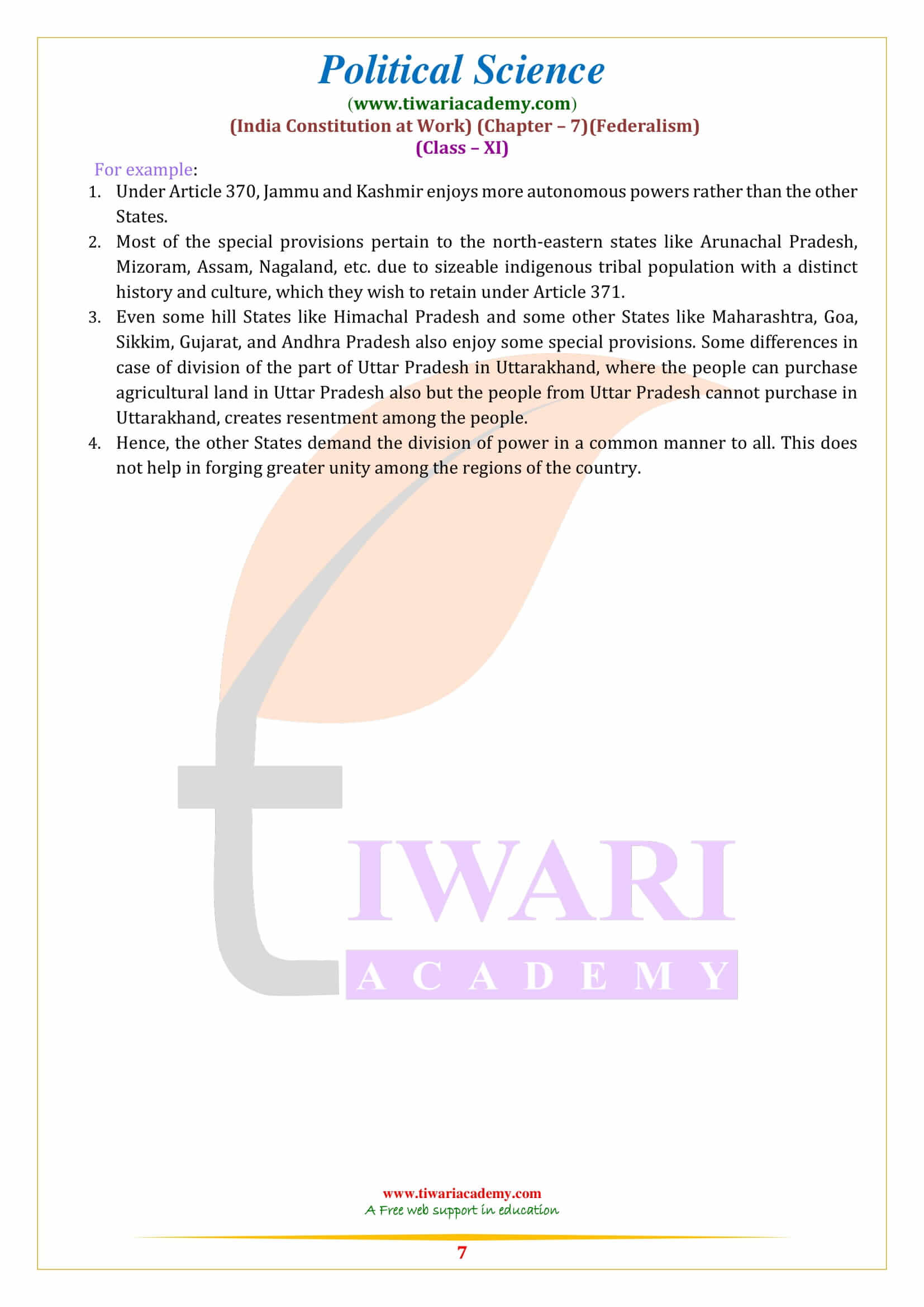NCERT Solutions for Class 11 Political Science Chapter 7 Federalism in Hindi and English Medium updated and modified for new academic session 2025-26. Student can get here all question-answers given at the end of chapter 7 in class 11th NCERT Indian Constitution at Work of Political Science.
NCERT Solutions for Class 11 Political Science Chapter 7
Which of the following should be the basis for formation of a State? Why? Common Language, Common economic interests, Common religion, Administrative convenience.
The administrative convenience should be the basis of the formation of the state as it helps in the better administration and welfare of the citizens or people of that area. This would automatically lead to economic development and the development of a common economy.
In a federation different states are formed on the basis of common language they speak. Hence, federation is the unity in diversity. But, the administrative convenience should be the based for formation of states to develop a culture of mutual trust, tolerance and cooperation.
Majority of people from the States of north India – Rajasthan, Madhya Pradesh, Uttar Pradesh, Bihar—speak Hindi. If all these States are combined to form one State, would it be in tune with the idea of federalism? Give arguments.
Federalism is an institutional mechanism to accommodate two seats of politics-one at the national level and the other at the regional level. If all the Hindi speaking regions of India, i.e. Rajasthan, U.P., M.P., Bihar, Gujarat are combined then there would be only a unitary or single unit, this cannot be called a federation.
The unification of four large states with sizeable populations would not be in tune with the idea of federalism because there are many regional variations in the local issues that affect people in these states. So, they require a separate political and administrative set up for each of them. Moreover, the creation of one very large state with a huge population would lead to imbalances in the distribution of resources across the territory. This would lead to unequal development and conflicts between various regions with the failure to fulfill the aspirations of all people.
List four features of the Indian Constitution that give greater power to the central government than the State government.
The four features of the Indian Constitution that give greater power to the central government than the State government are as follows:
Power becomes law fully centralised during emergency. Items that generate revenue are under the control of the central government.
Planning Commission that controls and supervise the resources management of the states is appointed by the central government.
The central government can delay the state legislation and can also examine the bills passed by the state legislature and completely veto them.
Articles 33 and 34 have strengthened the powers of the central government by authorising the parliament to protect persons in service of the union.
The state governments cannot take disciplinary action nor can remove any administrative officer appointed by the central government.
Article 356 provides central government with the power to dismiss state government and impose President’s rule.
Why are many States unhappy about the role of the Governor?
Many states are unhappy about the role of the governor because:
- The governor is appointed by the central government. Therefore, there are chances that the governor’s office is being used to control and remove the state government.
- The governor is not elected but appointed by the central government and can be a retired military officer, civil servant or politician.
- The governor can also suspend the elected state government and can also dissolve the legislative assembly. As per Article 356, the Governor exercises the power to recommend the dissolution of state assembly
- The governor enjoys the power to reserve a bill passed by the state government for the assent of the President.
- The role of Governor is considered to be interference by the central government in the functioning of the state government, hence it becomes controversial. This controversy becomes much more if the power vests in the different lands at the centre and the state.
What are the demands raised by States in their quest for greater autonomy?
Different states and political parties have adopted different methods to demand more autonomy:
- Some state demanded independent sources of revenue, i.e. Punjab and Tamil Nadu for greater financial powers.
- Some states demand the residual powers for themselves as they feel themselves as weak and that their interests are being horned.
- Demand to enjoy some greater powers to legislate laws on the subjects mentioned in the State list.
- Few States demand autonomy on the cultural and linguistic issues.
Should some States be governed by special provisions? Does this create resentment among other States? Does this help in forging greater unity among the regions of the country?
It is essential that some states should be governed by the special provisions on the basis of historical, cultural and social circumstances and administrative requirements.
1. The north-eastern states, Jammu & Kashmir, the hilly state of Himachal Pradesh and some other states like Andhra Pradesh, Goa, Gujarat, Maharashtra and Sikkim are governed by special provisions.
2. The special provisions are made according to the special requirements. For example, the north- eastern states of India have a unique history and tribal culture that needs to be protected. This has created resentment among other states as there is a fear that these provisions would lead to separation in those areas.
3. Many people oppose these provisions because they believe that there should be equal division of powers in federal state. No, this does not forge greater unity among the regions of the country as it leads to a feeling of bias.
For example: Under Article 370, Jammu and Kashmir enjoys more autonomous powers rather than the other States.
4. Most of the special provisions pertain to the north-eastern states like Arunachal Pradesh, Mizoram, Assam, Nagaland, etc. due to sizeable indigenous tribal population with a distinct history and culture, which they wish to retain under Article 371.
Even some hill States like Himachal Pradesh and some other States like Maharashtra, Goa, Sikkim, Gujarat, and Andhra Pradesh also enjoy some special provisions. Some differences in case of division of the part of Uttar Pradesh in Uttarakhand, where the people can purchase agricultural land in Uttar Pradesh also but the people from Uttar Pradesh cannot purchase in Uttarakhand, creates resentment among the people.
Hence, the other States demand the division of power in a common manner to all. This does not help in forging greater unity among the regions of the country.
